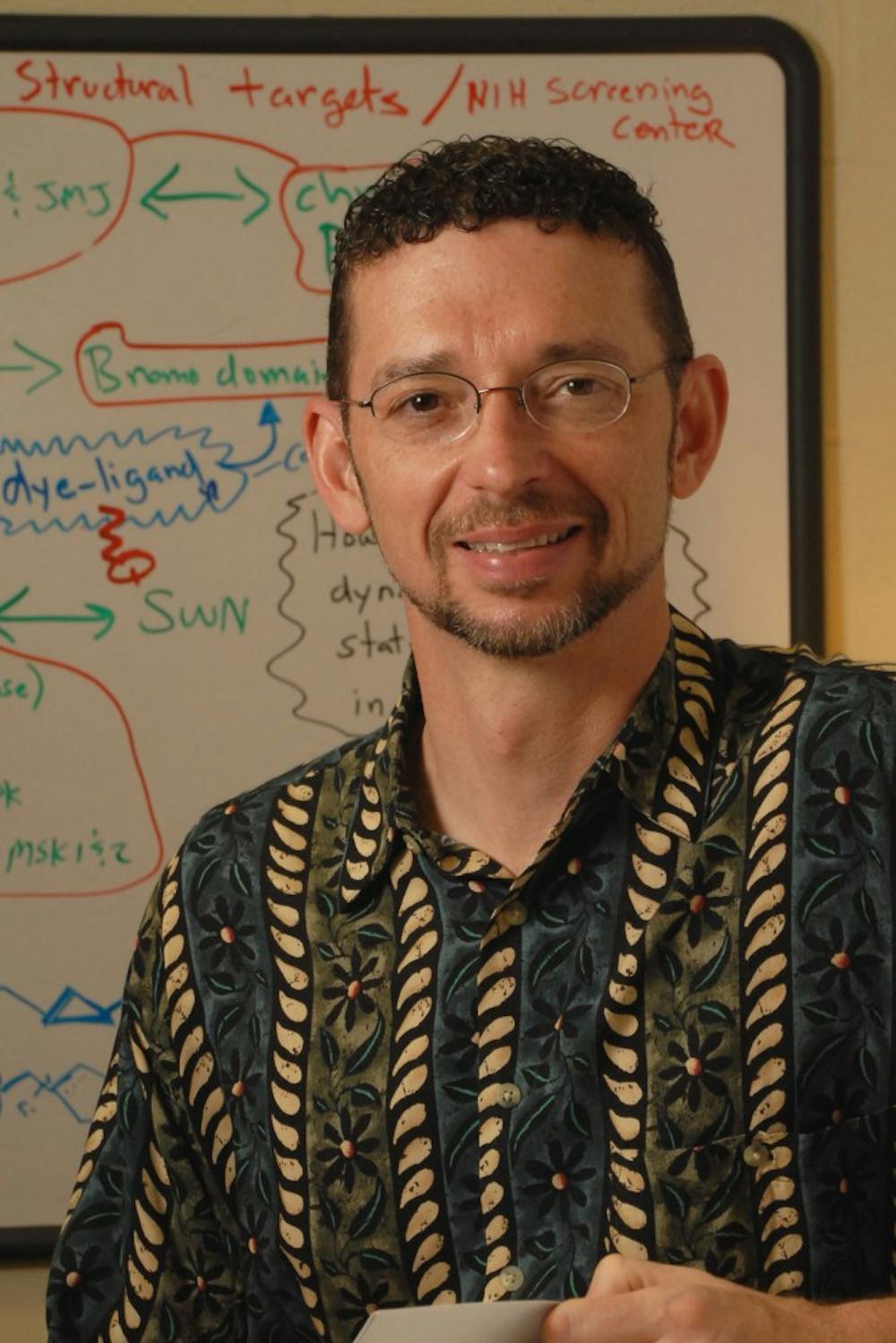“There’s a strong commitment to cancer research,” Baldwin said.
Part of that support comes from the University Cancer Research Fund, said Karen McCall, spokesperson for the School of Medicine and the UNC Health Care System. The fund was established by the state of North Carolina in 2007 to bolster cancer research.
“It was initially set up to invest $50 million a year and there’s been varying amounts throughout the years,” McCall said.
Baldwin said there are great cancer research programs all over the country. While UNC is not unique, it’s a stellar program, he said.
“It’s exemplified by our great publications, our great faculty, our national presence in clinical trials, companies that have started out of Lineberger that are dedicated to problems in cancer,” Baldwin said.
Baldwin said cancer is a significant problem that hits every family.
“People suffer and we’re committed to trying to improve that in small steps, but big steps occur as well,” Baldwin said.
Shawn Hingtgen, a pharmacy school professor and UNC Lineberger member, led the first study ever to show that skin cells can be used as cancer-killing stem cells.
“We really needed to make the cells come from you, from your skin,” Hingtgen said. “So that if you’re your own source for stem cells, we don’t have to worry about rejection.”
Hingtgen said there hasn’t been an effective brain cancer treatment in almost 30 years.
“It opens a new door for the future where we can actually make personalized, patient-specific, cancer-choosing cells simply by using your skin,” Hingtgen.
Hingtgen said the goal of cancer research is to make a difference in people’s lives.
To get the day's news and headlines in your inbox each morning, sign up for our email newsletters.
“It is really devastating and terrible to watch patients suffer when the treatment options are just not good enough and we need something better to help these patients,” Hingtgen said.
Earp said cancer affects society at every level and is the leading cause of death in North Carolina.
“It’s a disease that 1.6 million people in this country get every year and that creates a lot of cost and a lot of hope and opportunity,” Earp said.
Chad Ellis, associate director of UNC Lineberger for planning and administration, said the fight to cure cancer is a national effort.
“The University Cancer Research Fund really enables us to focus on the state of North Carolina,” Ellis said. “It’s a very unique state.”
The Lineberger Cancer Center has brought together 1,000 faculty members from many of UNC’s schools, not just the School of Medicine, McCall said.
Ellis said UNC has created an environment where everyone wants to work together.
“We’re really trying to create a place where those folks can come together and try to tackle a problem from every possible angle.”
university@dailytarheel.com




